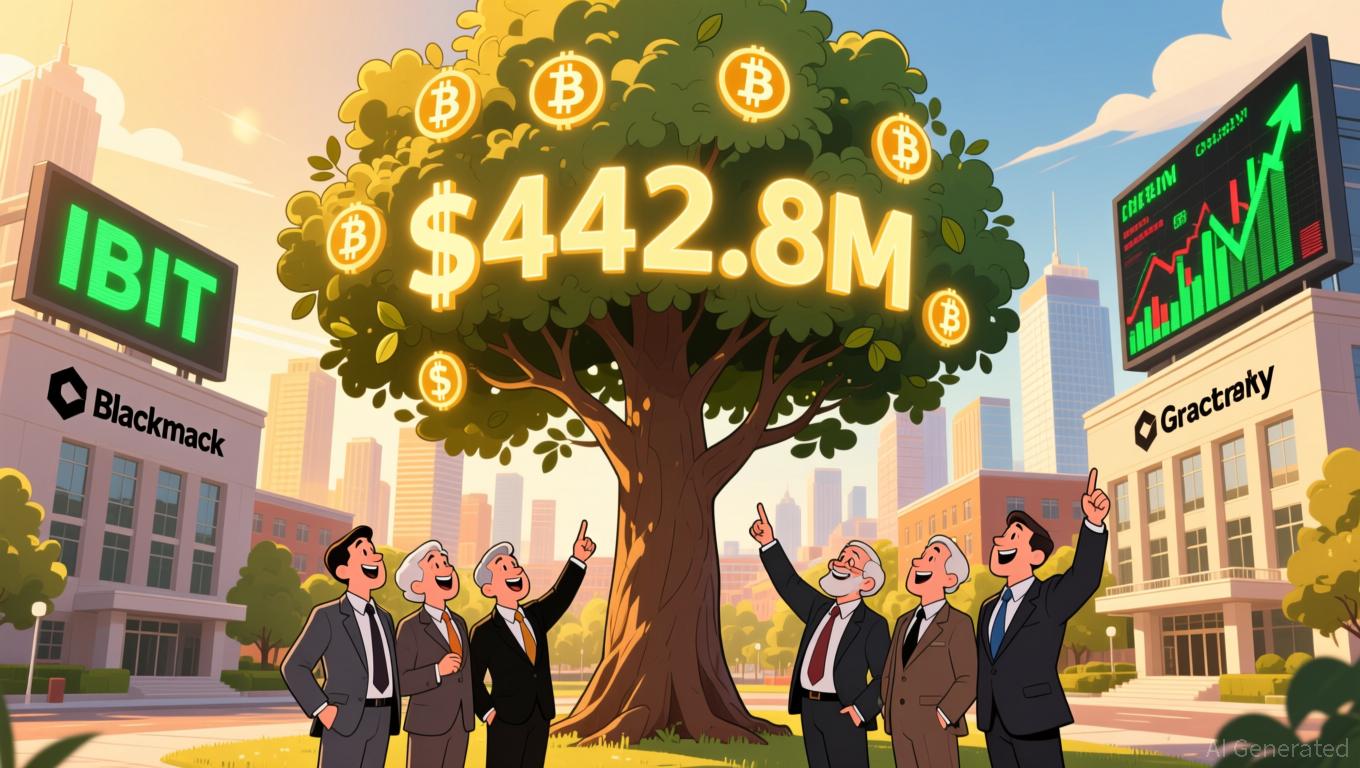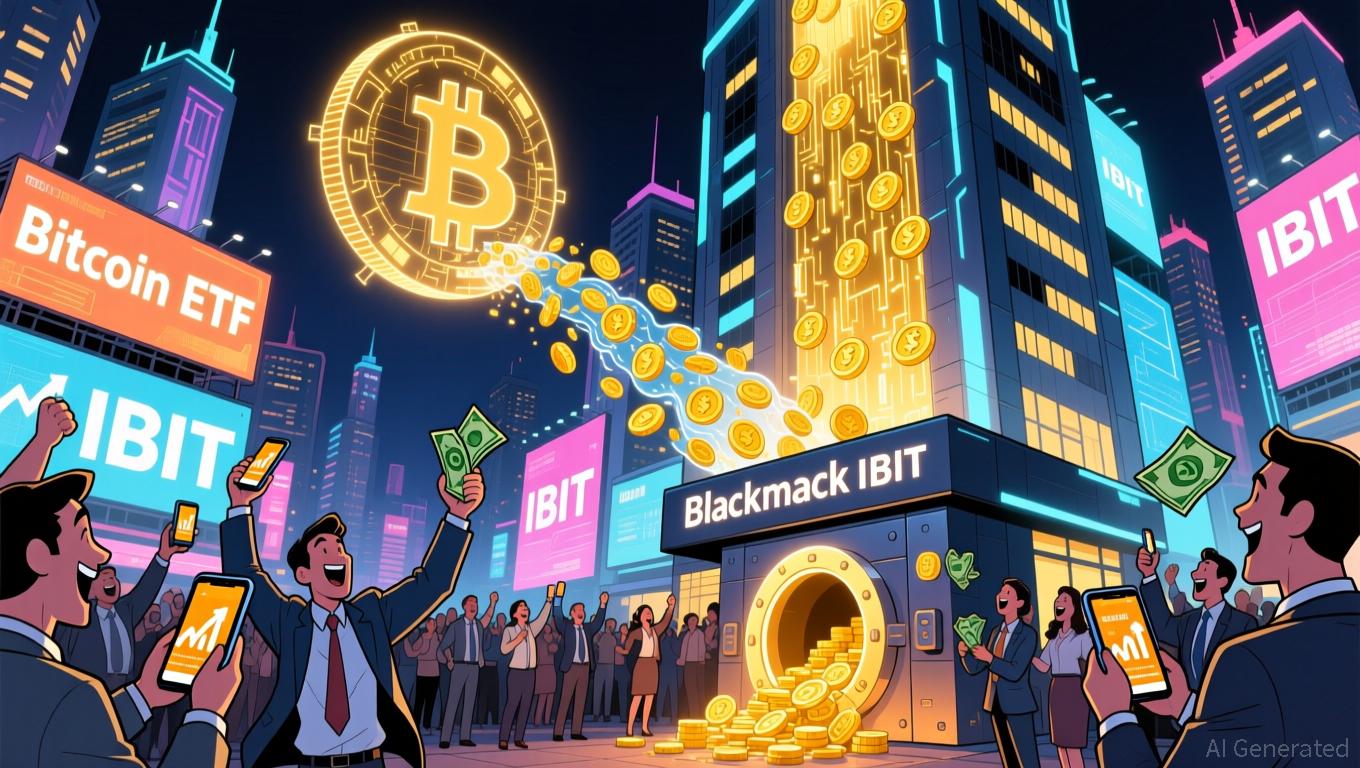Harvard Boosts IBIT Stake to $442.8M in Major Q3 Crypto Move
Harvard University made one of its boldest digital-asset moves yet in Q3 2025. It massively increased its stake in BlackRock’s iShares Bitcoin Trust (IBIT). The university’s latest SEC filing shows that its endowment more than tripled its exposure to Bitcoin ETFs during the quarter. They are securing their position as one of the largest institutional holders of IBIT.
Harvard Adds $326M in IBIT as Bitcoin Volatility Rises
Harvard Management Company, which oversees the school’s $53 billion endowment, added $326 million worth of IBIT in Q3. This lifts its total holdings to 6.8 million shares valued at $442.8 million. The stake reflects a 257% increase from the previous quarter. When Harvard held just under $117 million in IBIT. This jump came during a volatile stretch for Bitcoin, with prices swinging between $55,000 and $70,000.
Despite the choppy market, Harvard leaned into the asset and made the Bitcoin ETF its largest reported position in the quarter. Analysts called the move “rare” for a U.S. endowment. Especially one of Harvard’s size and reputation. IBIT is now Harvard’s biggest single position in its 13F filing. It is surpassing shares of Microsoft, Amazon and even gold.
IBIT Now Harvard’s Top Holding, Surpassing Tech Giants
Harvard’s $442.8 million IBIT stake now ranks above its holdings in Microsoft ($322.8 million), Amazon ($235.1 million), and Alphabet ($157 million). Only gold comes close, with the university more than doubling its SPDR Gold Shares (GLD). Which position to $235.1 million in the same quarter. This reshuffling shows a clear shift in how the endowment views digital assets.
Bitcoin now sits ahead of some of the world’s largest companies in Harvard’s portfolio weighting. A striking change compared to the cautious approach most endowments still take toward crypto. Even with the large allocation, IBIT represents less than 1% of the total endowment. But in institutional terms, the size is meaningful enough to place Harvard among the top 20 holders of the ETF.
Signals Growing Institutional Confidence in Bitcoin ETFs
Harvard’s expansion into Bitcoin ETFs adds to a trend. That began after U.S. regulators approved spot Bitcoin ETFs in early 2024. Many institutions were hesitant at first. But filings throughout 2025 show that adoption has been steadily rising. Harvard’s position is especially symbolic. University endowments typically move slowly and avoid high-volatility assets unless they see long-term structural value.
Harvard’s aggressive ramp-up is being viewed as validation for Bitcoin ETFs. Both for their liquidity and for their fit within traditional portfolios. Industry commentators noted that getting an endowment to “bite on an ETF” is unusually difficult. Harvard doing so at scale sends a strong message about institutional sentiment.
Outlook: More Endowments May Follow
With Harvard is now making Bitcoin one of its largest public-market positions. The market watchers expect other endowments and pension funds to reconsider their stance. Many have exposure to gold, equities and infrastructure. But crypto allocations remain rare. Harvard’s move suggests this could be changing.
As Bitcoin continues to mature and ETF products become more familiar. More institutional players may feel comfortable taking similar steps. Currently, though, Harvard stands out not just for the size of its investment. But for the signal it sends across Wall Street and academia alike.
Disclaimer: The content of this article solely reflects the author's opinion and does not represent the platform in any capacity. This article is not intended to serve as a reference for making investment decisions.
You may also like
Bitcoin Updates: Corporate Bitcoin Holdings Transform Crypto Industry While MicroStrategy Stands Strong Amid Market Fluctuations
- MicroStrategy's Michael Saylor denied Bitcoin sale rumors, reaffirming the company's aggressive BTC accumulation strategy despite market volatility. - The firm holds 641,692 BTC ($61.3B) but faces liquidity risks as its market value dips below holdings' net asset value for the first time. - Leveraged debt ($47.5B) and falling BTC prices raise concerns about a "death spiral," though analysts suggest forced sales are unlikely until 2027. - Saylor's bullish stance contrasts with market jitters, as corporate

Bitcoin Updates: Harvard’s Investment in Bitcoin Challenges Previous Doubts as More Institutions Join
- Harvard University tripled its Bitcoin stake in IBIT, now holding $442.8M in the ETF, making it the fund's 16th-largest holder. - The move defies past skepticism from Harvard economists like Kenneth Rogoff, who once predicted Bitcoin would fall to "$100 rather than $100,000". - Institutional adoption grows as Abu Dhabi's Al Warda and Emory University also boosted Bitcoin ETF holdings, despite recent market volatility and outflows. - Harvard's 0.6% Bitcoin allocation in its $57B portfolio highlights crypt

Bitcoin Updates: Bitcoin Drops, Harvard's $364 Million ETF Investment Shows Institutional Commitment
- Harvard University increased its BlackRock IBIT Bitcoin ETF stake by 257% to $364.4M, becoming a top institutional holder. - The $50B endowment also doubled gold ETF holdings, treating both assets as inflation hedges amid macroeconomic uncertainty. - Emory and Abu Dhabi's Al Warda similarly boosted crypto-linked ETFs, signaling institutional confidence in regulated digital assets. - Analysts highlight Harvard's ETF adoption as rare validation, with U.S. spot Bitcoin ETFs attracting $60.8B in inflows sinc

Astar 2.0's Tactical Rollout and Its Impact on DeFi Advancements
- Astar 2.0 introduces institutional-grade DeFi architecture with 6-second block times and 150,000 TPS via Polkadot's async protocol. - Cross-chain interoperability with LayerZero/CCIP enables seamless asset transfers across Ethereum , BSC, and Polkadot ecosystems. - Strategic partnerships with Mizuho Bank, Casio, and Japan Airlines demonstrate real-world applications in CBDCs, logistics, and digital rewards. - $3.16M institutional ASTR purchase and 20% QoQ wallet growth highlight growing confidence in its

